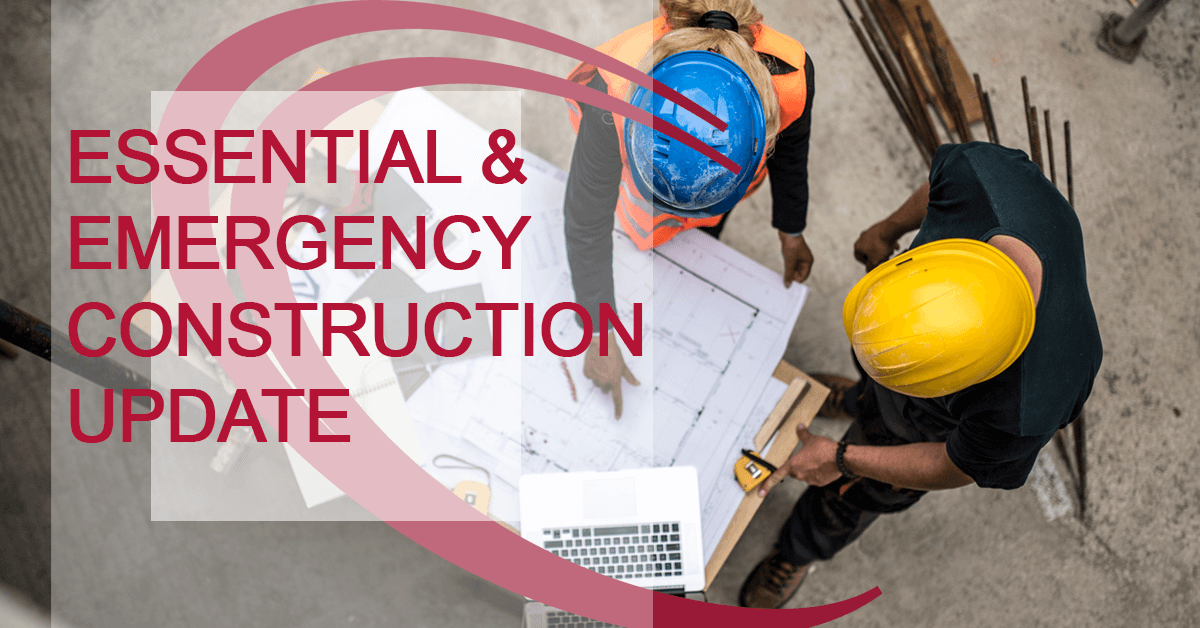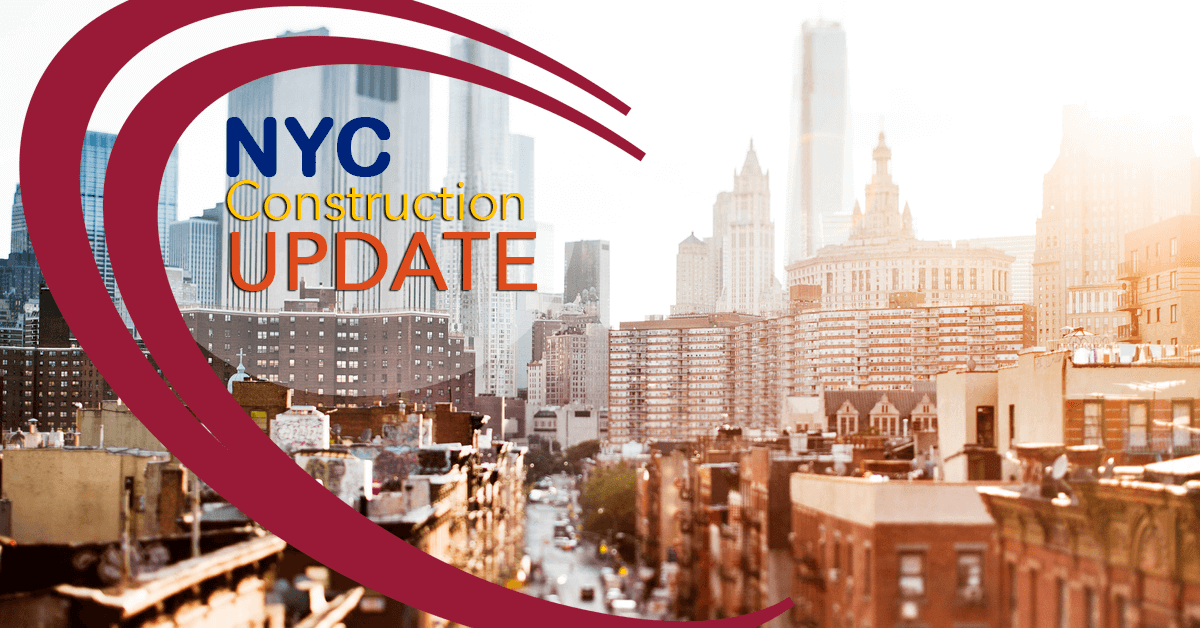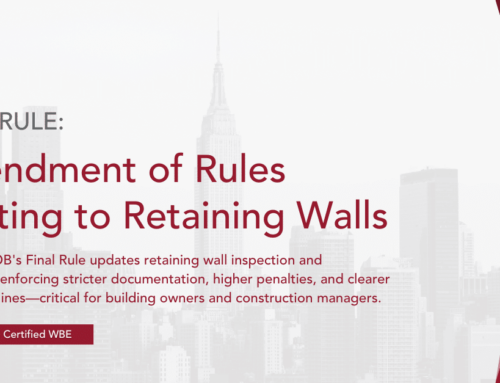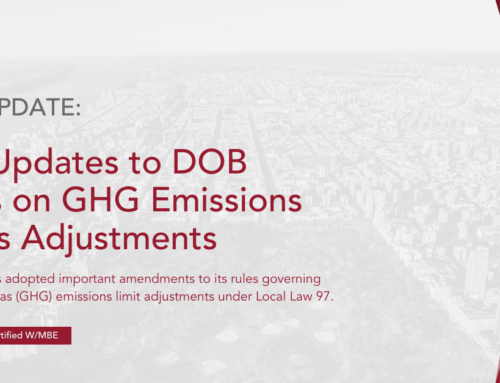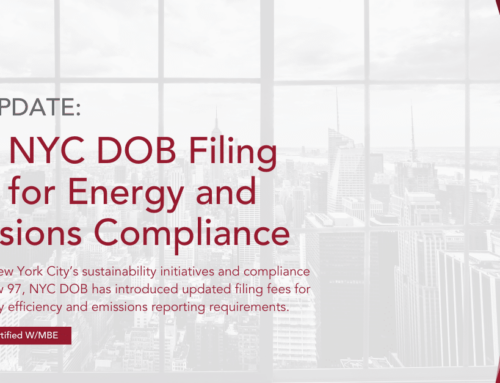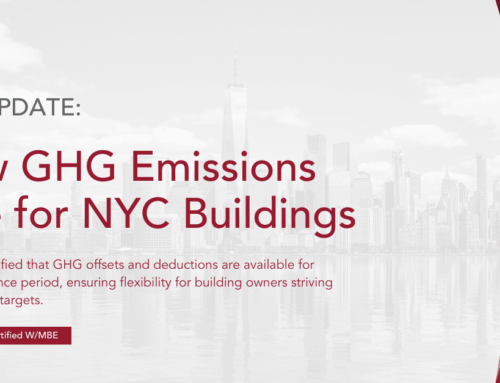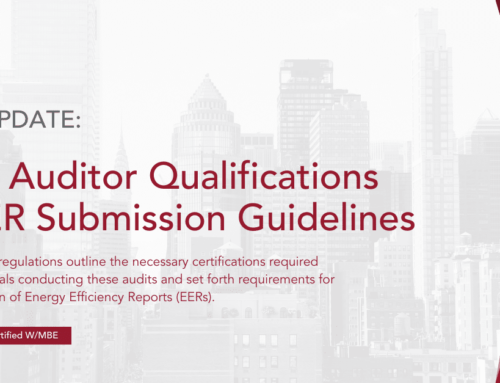UPDATE FROM EMPIRE STATE DEVELOPMENT ON ESSENTIAL & EMERGENCY CONSTRUCTION 4/9/20
We have received more guidance from Empire State Development.
Clarification from Empire State Development:
Essential Construction
All non-essential construction must safely shut down, except emergency construction, (e.g. a project necessary to protect health and safety of the occupants or to continue a project if it would be unsafe to allow to remain undone, but only to the point that it is safe to suspend work).
Essential construction may proceed, to the extent that:
- The construction is for, or your business supports, roads, bridges, transit facilities, utilities, hospitals or healthcare facilities, homeless shelters, or public or private schools;
- The construction is for affordable housing, as defined as construction work where either (i) a minimum of 20% of the residential units are or will be deemed affordable and are or will be subject to a regulatory agreement and/or a declaration from a local, state, or federal government agency or (ii) where the project is being undertaken by, or on behalf of, a public housing authority;
- The construction is necessary to protect the health and safety of occupants of a structure;
- The construction is necessary to continue a project if allowing the project to remain undone would be unsafe, provided that the construction must be shut down when it is safe to do so;
- The construction is for projects in the energy industry in accordance with Question No. 14 in the FAQ at: https://esd.ny.gov/sites/default/files/ESD_EssentialEmployerFAQ_033120.pdf;
- The construction is for existing (i.e. currently underway) projects of an essential business; or
- The construction work is being completed by a single worker who is the sole employee/worker on the job site.
At every site, it is required that the personnel working on the site maintain an appropriate social distance, including for purposes of elevators/meals/entry and exits. Sites that cannot maintain appropriate social distancing, as well as cleaning/disinfecting protocols must close. Enforcement will be conducted by state and local governments, including fines up to $10,000 per violation.
Construction may continue solely with respect to those employees that must be present at the business location/construction site in support of essential business activities. No other employees/personnel shall be permitted to work in-person at the business location/construction site. Any other business activities being completed that are not essential are still subject to the restrictions provided by Executive Order 202.
As noted above, local governments, including municipalities and school districts, are allowed to continue construction projects at this time as government entities are exempt from these essential business restrictions. However, to the greatest extent possible, local governments should postpone any non-essential projects and only proceed with essential projects when they can implement appropriate social distancing and cleaning/disinfecting protocols. Essential projects should be considered those that have a nexus to health and safety of the building occupants or to support the broader essential services that are required to fulfill the critical operations of the government or the emergency response to the COVID-19 public health crisis.
****Should you have any questions concerning these guidelines, please do not hesitate to contact us at 212- 825-1205 or cahill-construction-division@cahillstrategies.com ****
Cahill Welcomes Bob D’Alessio

As Cahill Strategies’ Construction Code and Safety Consultant, Bob brings an unparalleled level of knowledge and practical experience to our growing construction solutions practice area.
Cahill Strategies is Your Team for New York Construction Solutions!
Contact us today at cahill-construction-division@cahillstrategies.com or call us at 631-770-3840
Construction Solutions
Cahill Strategies has experience representing large general contractors, construction management firms, owners, and developers. A key to our success is our vast network of decision makers that we have the ability to reach on your behalf. Additionally, our team is involved in the legislative and regulatory processes at the Federal, State, and Local levels which affect the construction industry in New York State, New York City, and the surrounding regions. We possess the knowledge of industry standards and trends, along with key relationships that will bring your projects to fruition.

